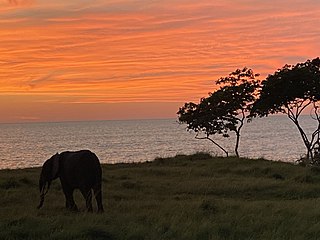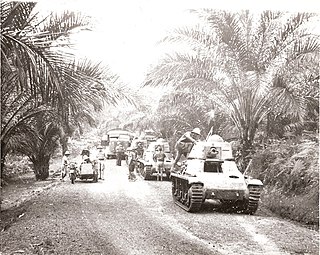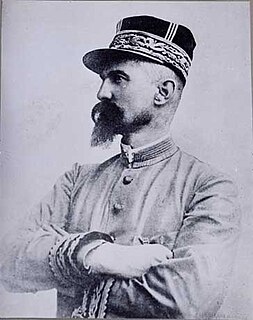 W
WLittle is known of the history of Gabon prior to European contact. Bantu migrants settled the area beginning in the 14th century. Portuguese explorers and traders arrived in the area in the late 15th century. The coast subsequently became a center of the transatlantic slave trade with European slave traders arriving to the region in the 16th century. In 1839 and 1841, France established a protectorate over the coast. In 1849, captives released from a captured slave ship founded Libreville. In 1862–1887, France expanded its control including the interior of the state, and took full sovereignty. In 1910 Gabon became part of French Equatorial Africa and in 1960, Gabon became independent.
 W
WThe French Congo or Middle Congo was a French colony which at one time comprised the present-day area of the Republic of the Congo and parts of Gabon, and the Central African Republic. In 1910, it was made part of the larger French Equatorial Africa.
 W
WFrench Equatorial Africa, or the AEF, was the federation of French colonial possessions in Equatorial Africa, extending northwards from the Congo River into the Sahel, and comprising what are today the countries of Chad, the Central African Republic, the Republic of the Congo, and Gabon.
 W
WThe Battle of Gabon, also called the Gabon Campaign, occurred in November 1940 during World War II. The battle resulted in the Free French Forces taking the colony of Gabon and its capital, Libreville, from Vichy French forces. It was the only significant engagement in Central Africa during the war.
 W
WÉmile Gentil was a French colonial administrator, naval officer, and military leader.
 W
WThe Jeunesse Gabonais was the first political party in colonial Gabon. Founded in 1922, it was "outspokenly anti-colonialist without being anti-French". The party's goals were primarily focused on improving educational opportunities and assimilated Gabonese involvement in colonial administration.
 W
WThis is a list of European colonial administrators responsible for the territory of French Equatorial Africa, an area equivalent to modern-day Gabon, Cameroon, Republic of the Congo, Central African Republic and Chad.
 W
WGabon is a country in west central Africa sharing borders with the Gulf of Guinea to the west, Equatorial Guinea to the northwest, and Cameroon to the north, with the Republic of the Congo curving around the east and south. Its size is almost 270,000 km² with an estimated population of 1,500,000. The capital and largest city is Libreville.
 W
WThe second inauguration of Ali Bongo Ondimba for his second seven-year term as the third President of Gabon occurred on 27 September 2016 after the August 2016 presidential election. This was the second time Ali Bongo took the oath after he was first sworn into office on 16 October 2016.
 W
WIn World War II, French West Africa was not a major scene of major fighting. Only one large-scale action took place there: the Battle of Dakar. The region remained under the control of Vichy France after the fall of France and until the Allied invasion of North Africa. French Gabon, the only colony of French Equatorial Africa not to join Free France after the armistice, fell to invading Free French Forces from the neighbouring colonies after the Battle of Gabon, further isolating West Africa.